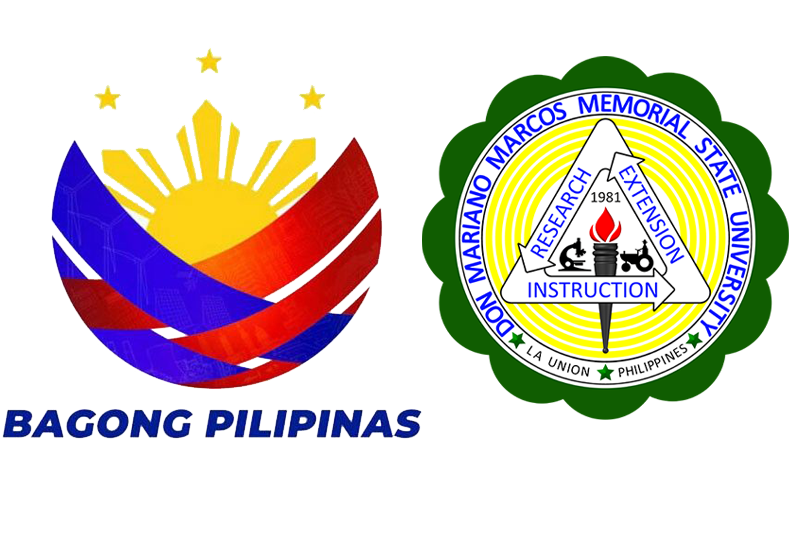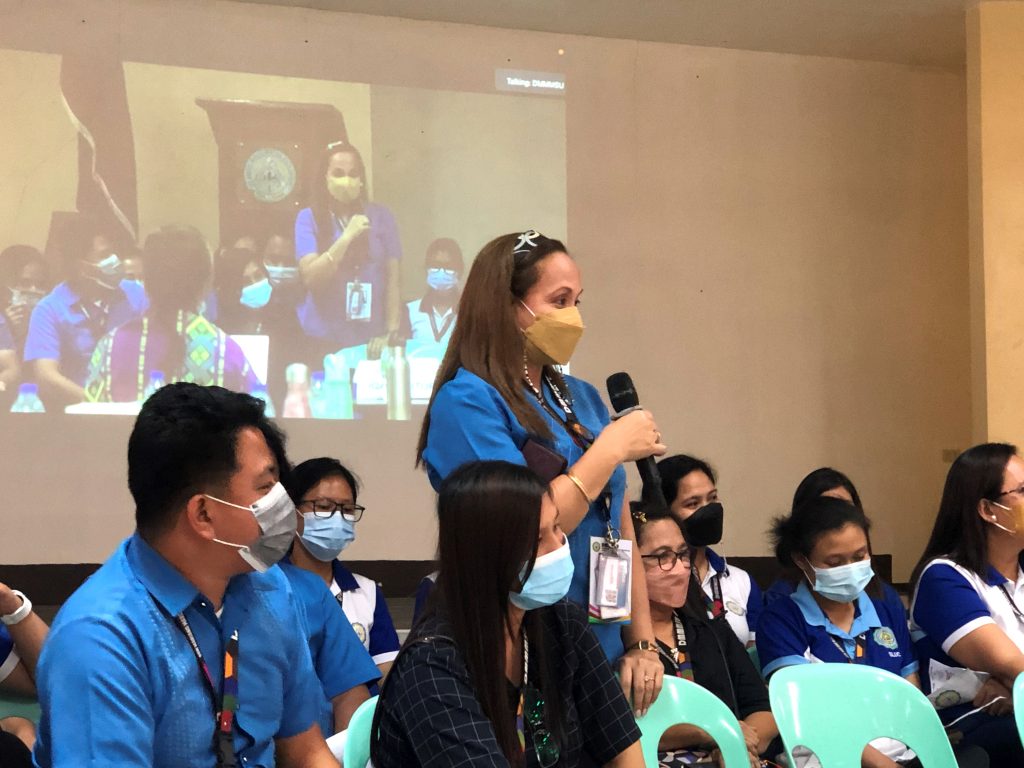From last year’s hybrid of onsite and online audits due to restrictions and limitations of movements, 55 Internal Quality Assurance auditors kicked-off with this year’s first cycle audit, this time full onsite.
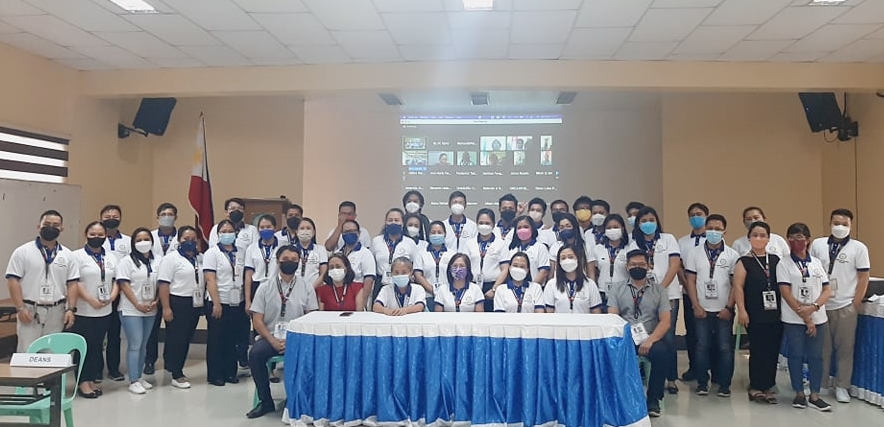
This year’s audit opened in the Mid La Union Campus and in the Open University System on March 14 to 16, and in the South La Union Campus on March 21 to 24. Audit in the Central Administration, the North La Union Campus (NLUC), the National Apiculture Research and Development Institute (NARTDI), and the Sericulture Research and Development Institute is scheduled on April 18 to 21, 2022.
The audit is anchored in the following objectives:
1) To determine the extent of implementation and compliance of the University quality management system with the ISO 9001:2015 and other statutory and regulatory requirements;
2) To determine the level of compliance with the observations/OFIs during the 2021 second Internal Audit, and implementation of the corrective actions on Minor NCs issued by the Certifying body during the Year 1 Surveillance Audit and Stage 2 Audit; and
3) To ensure QMS continuous improvement.
During opening meetings, Atty. Kate P. Licay, University Coordinator for Internal Management Audit and Audit Team Leader, emphasized the need for auditors to construct definite statements of findings (NC or OFI), to communicate these findings clearly with the auditees, and ensure that the auditees affirm the findings.
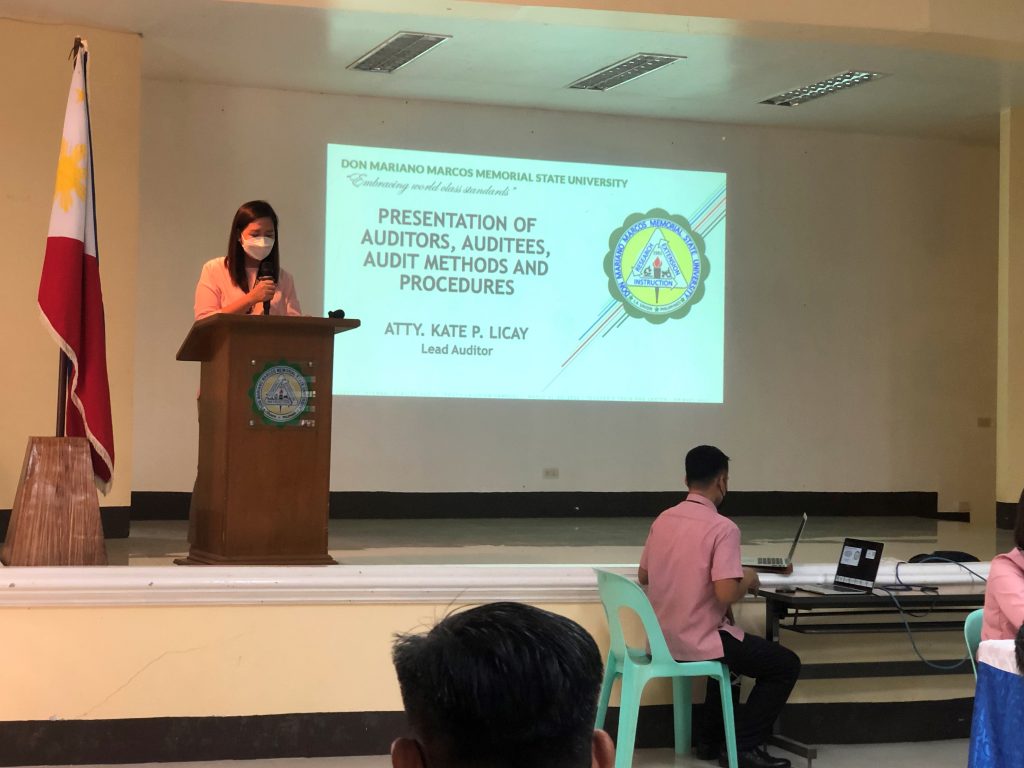
“This 1st Internal Quality Assurance Audit 2022 strengthened its focus on QMS awareness among faculty members and nonteaching personnel. Some were invited for an interview by our Quality Management Representative and VP for Administration, Dr. Estrella N. Perez. Moreover, the IQAS Heads were assigned as Team Leaders in the different processes of the University. There is also a systematic process in the submission and review of audit reports. What’s more, the different Campuses established Campus ISO Portal of the different process owners,” Dr. Darwin Galleta, an auditor from MLUC, shared when asked about his observations in the conduct of audit.
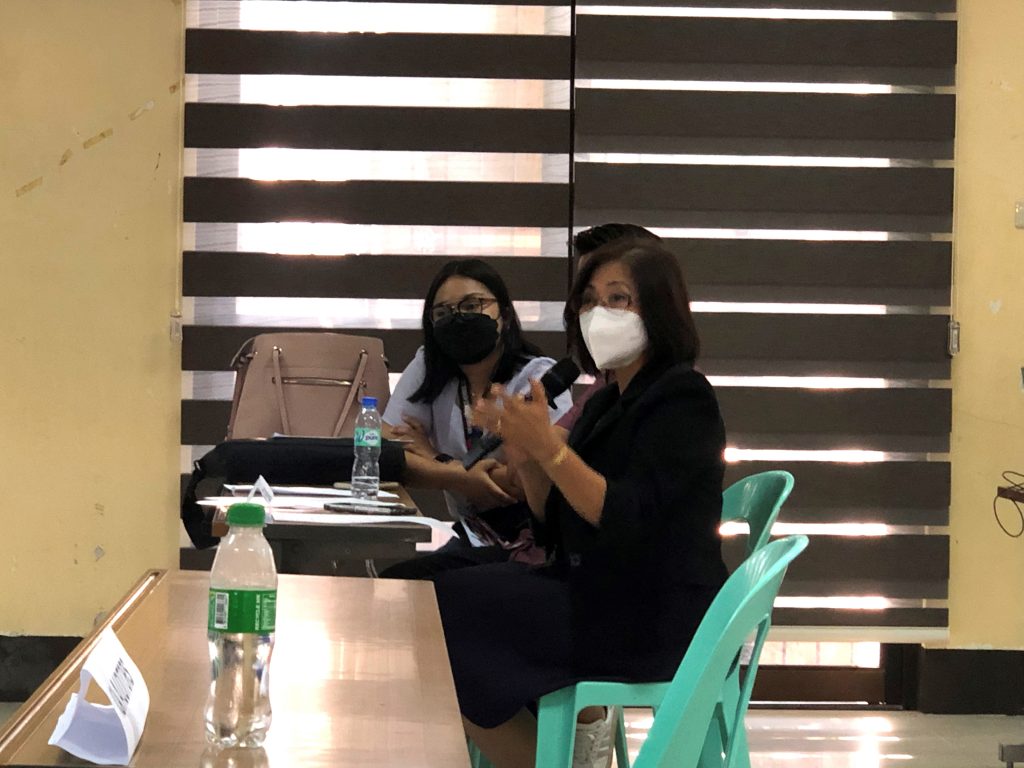


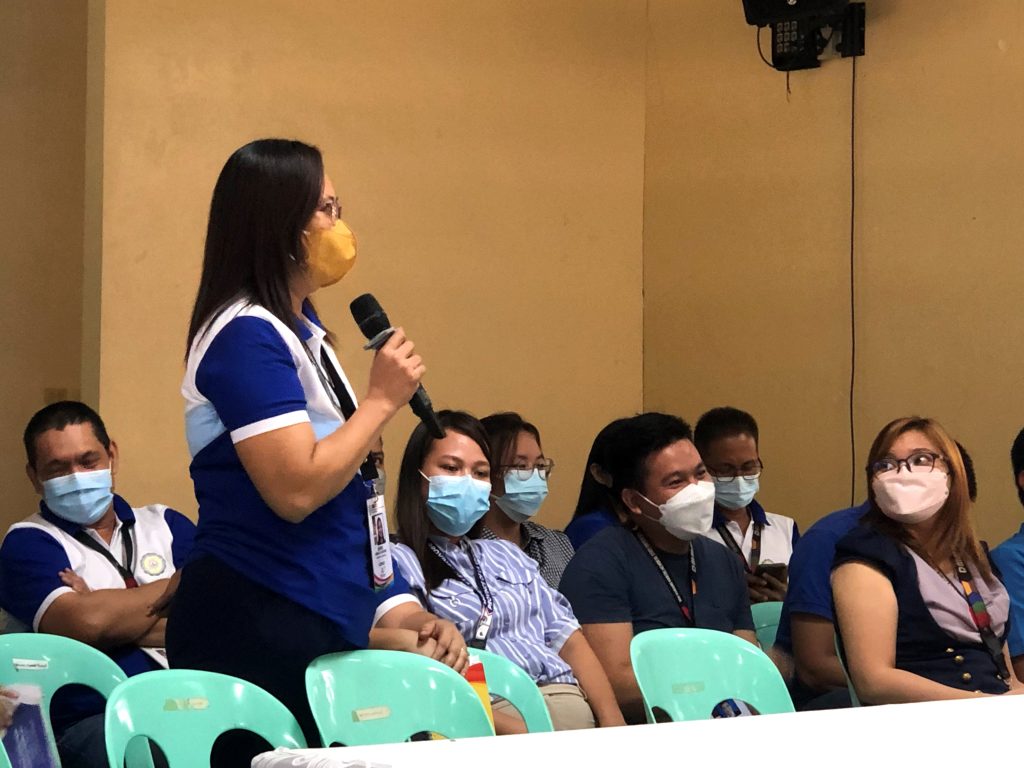
“Process owners’ commitment in the implementation of quality management system is evident,” Dr. Claudia Barbadillo, an auditor from OUS, added.
Meanwhile, Heads of Units expressed continued commitment to support DMMMSU’s ISO journey.
“. . . we should not remain complacent that we got certified. Excellence is not a one-time event but it is something to be sustained. To be excellent means we have to be better from our previous performance. This is to say that while we have been certified, it does not mean that we are already perfect,” Dr. Emmanuel J. Songcuan, Head for Quality Assurance in SLUC, said as he expressed commitment on behalf of Dr. Joanne C. Rivera, SLUC Chancellor.
Quoting from Winston Churchill, he continued: “’To improve is to change, to be perfect is to change often.’ Indeed, what ISO has taught is to change as need be to adapt to both internal and external conditions and requirements.”
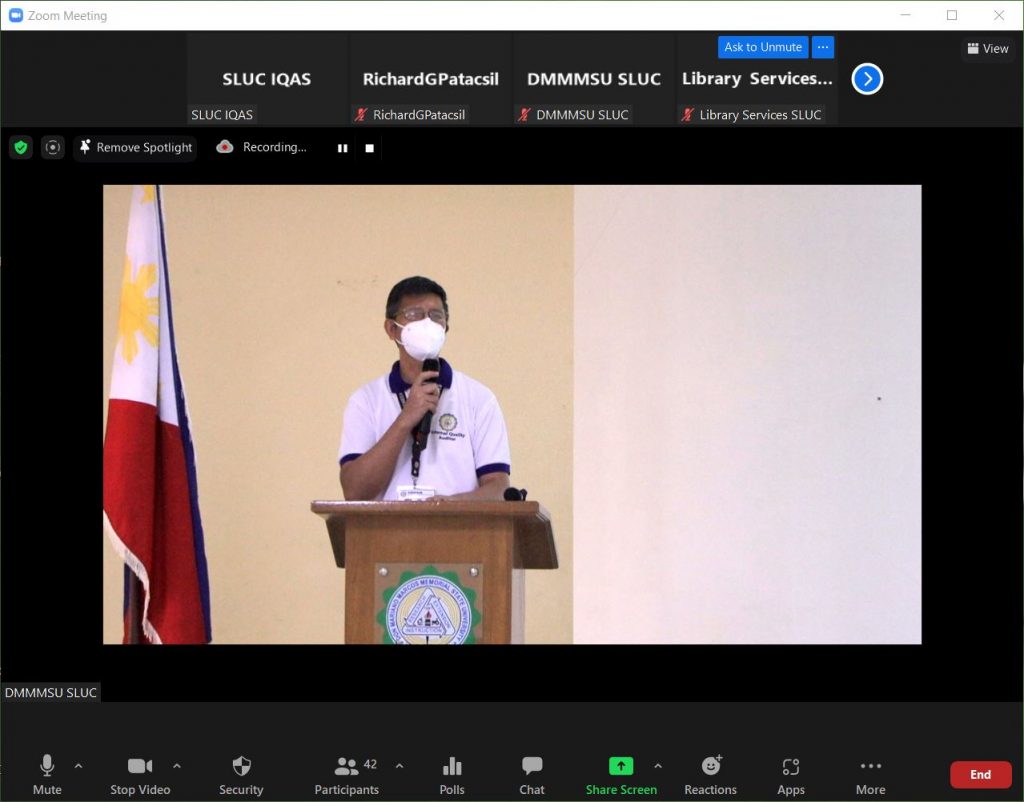
Similarly, during the closing meeting in DMMSU Open University System, Dr. Cristita C. Guerra, acknowledged the relevance of Internal Quality Assurance audit:
“Any organization intending to better itself in its pursuit of quality public service must not just be open to client feedback but also commit to internal quality control mechanisms as part of organizational management and development. Such is the disposition we take here at OUS being the University’s open distance learning arm.”
“This three-day IQA activity has helped us refocus on our own internal priorities as necessary ingredients to becoming a stronger and more resolute higher education institution.”
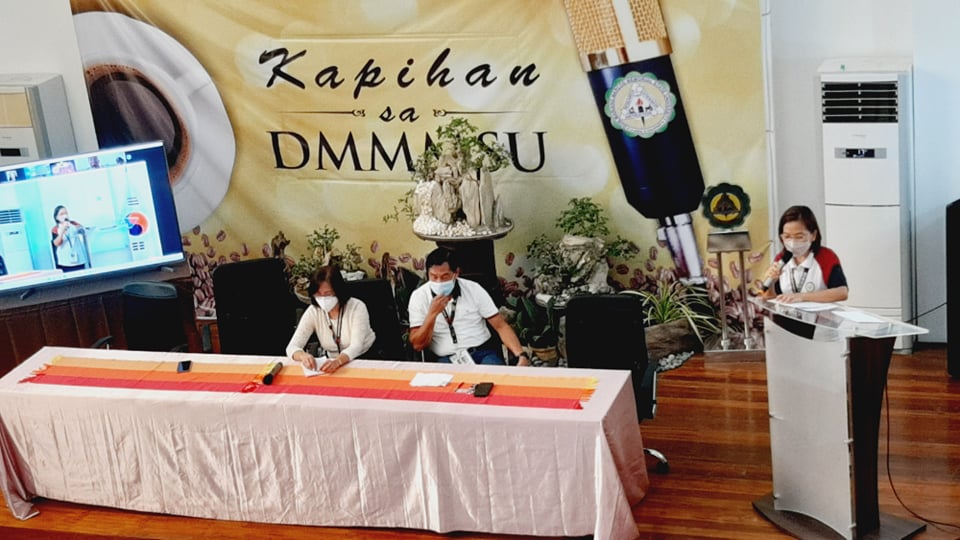
During the closing meeting in SLUC, VP Perez further underscored the importance of audit against ISO 9001:2015 standards: “We thought of ISO 9001: 2015 as one way of solving some problems in the University. Through this we have seen areas that need to be standardized. We hope that this standardization continues to contribute to some of our aspirations, the improvement of our processes, and our well-being as DMMMSU employees in general.”
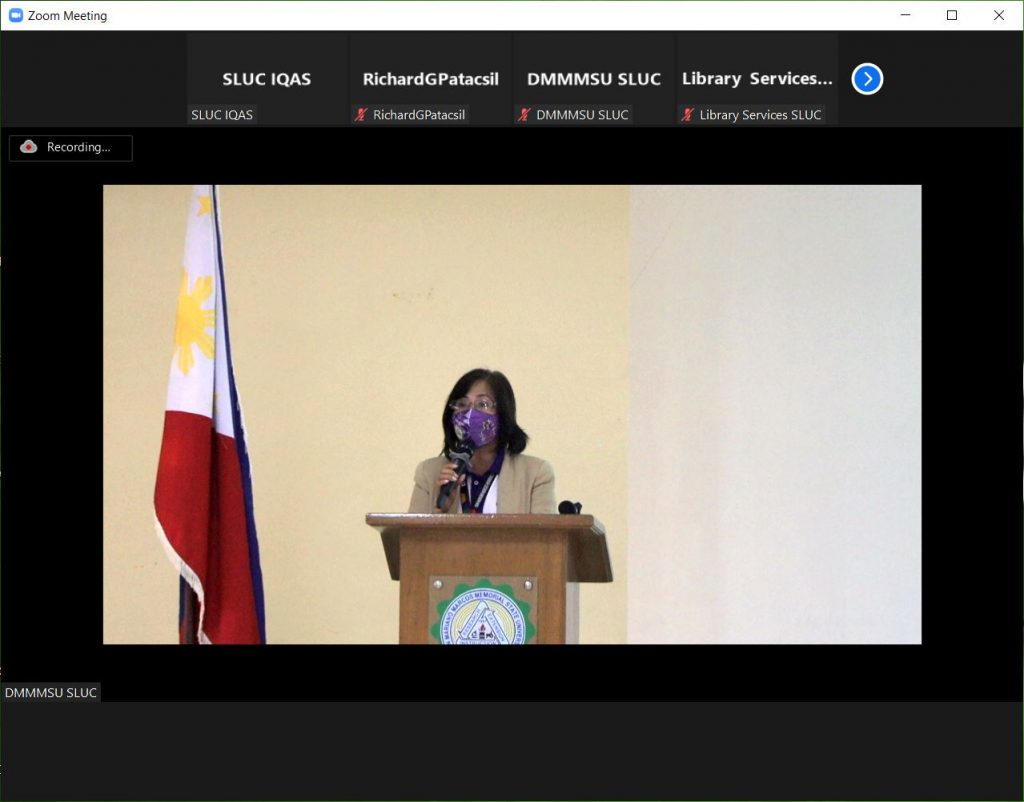
The 55 IQA auditors 55 comprise of teaching and non-teaching personnel who are experts in their own fields. They are products of the two batches of trainings and qualifying exams provided by DMMMSU’s ISO consultant. Another training for auditors will be designed to recruit more in order to have equal representation of auditors in the different operating units of the University. (Ayu)
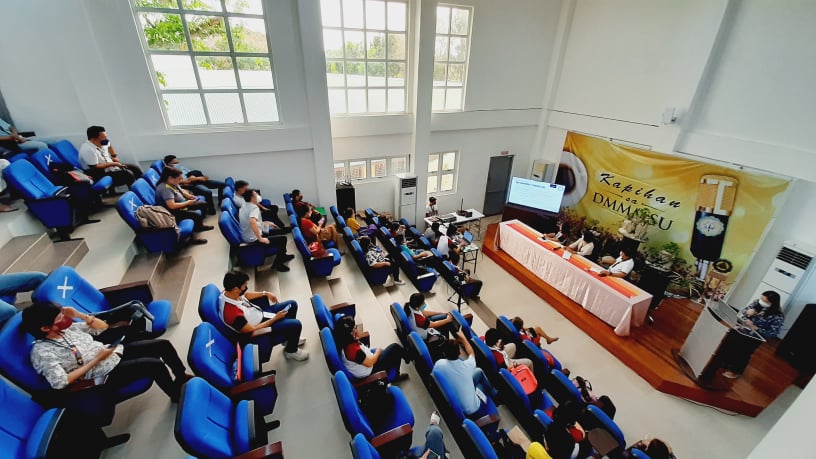
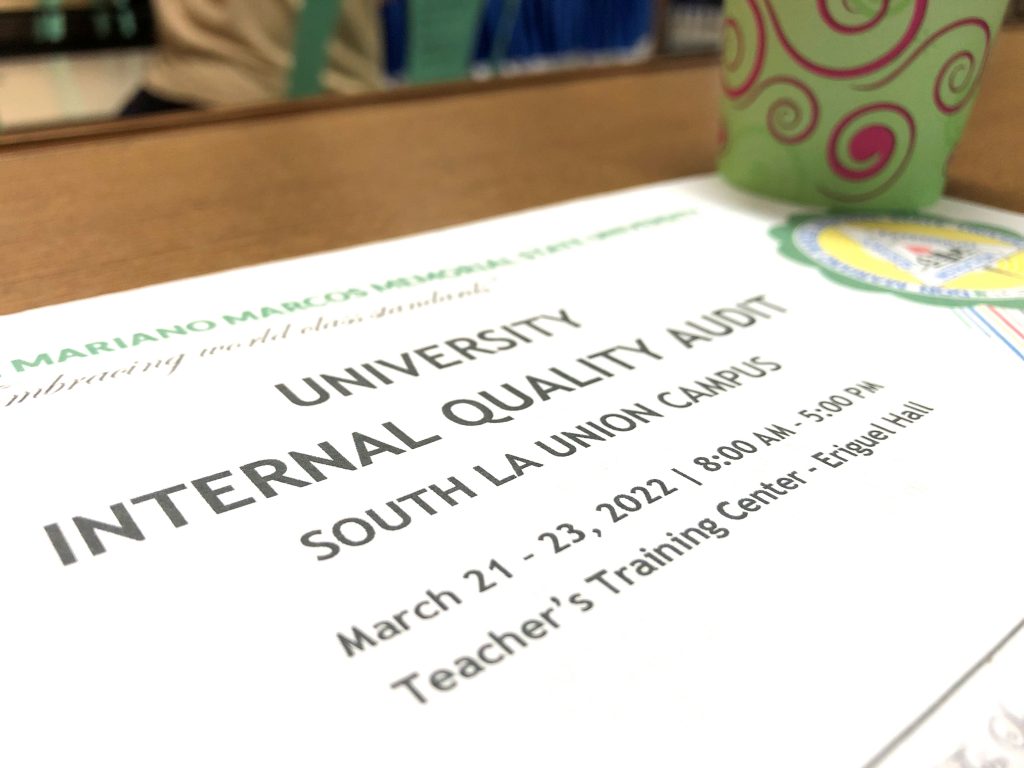
Photos| Enrico Dacanay & Joel Estacio
